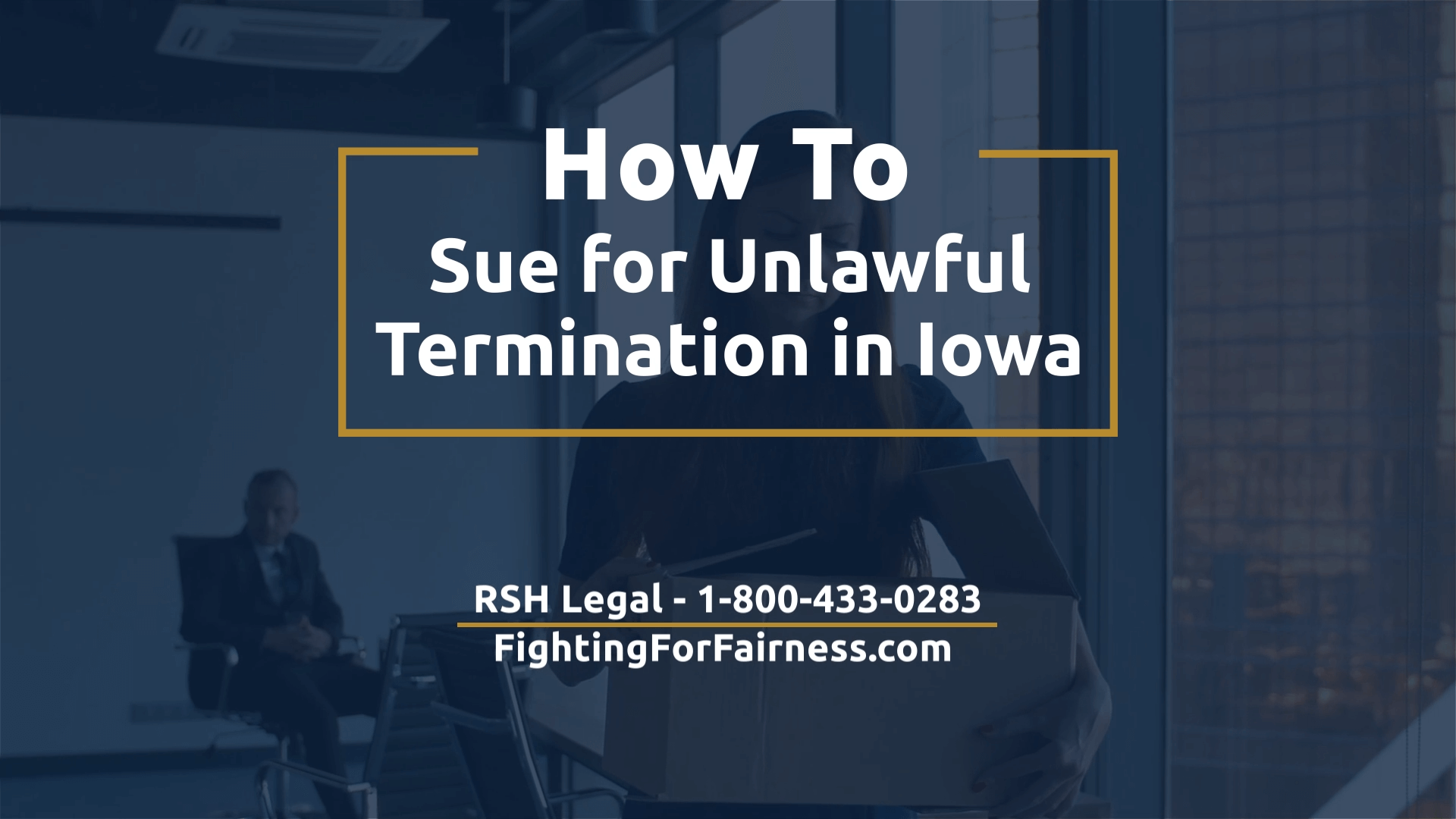1. What is the Protocol for Testing Iowa Nursing Home Residents for COVID-19 Symptoms?
Nursing homes have always been required to evaluate their residents for any sort of respiratory problem. Obviously, under the circumstances of this pandemic, their responsibilities are higher. They have to test anybody who qualifies under those tests. The standards for how someone qualifies to be tested for COVID-19 is constantly evolving, but what’s important is that the nursing home has to notify the health department about any residents who have severe respiratory infections or any group of more than 3 people (including residents or staff) who have a new onset of respiratory symptoms.
So what do they have to do once they have identified someone who may have COVID-19? It really depends on whether or not the individual requires a higher level of care than the facility can provide. If they do, then they need to be transferred to a different facility.
If the facility has the ability to care for someone with COVID-19 symptoms, then they are expected to provide them that level of care. That may involve things like wearing a face mask if tolerated, being separated from others – like being kept in their room with the door closed, and it’s going to be important that the nursing home provides its workers with personal protection equipment, or PPE, that they can use when interacting with the nursing home residents.
2. My Iowa Employer Thinks I’m an Essential Employee, But I Don’t Think I Am. What Can I Do?
Right now, the only guidance we have on this comes from Iowa governor Kim Reynolds’ executive orders, which basically identifies specific types of businesses as non-essential, which should not be open at this point. The extent of which you could not show up for work in reliance on that executive order is really unclear at this point in time – so our general advice is that if your employer is still open and they’re expecting you to come to work, unless some other protection applies, normal employment rules apply.
If you stop showing up for work, your employer can terminate you under normal employment practices. As far as we’re aware, there aren’t any new protections for employees during this time if you disagree with your employer whether or not you’re an essential employee.
3. I Have a Deposition Coming Up. How Will My Attorney Handle This?
The best way to answer this is to call your attorney. But in general, what is happening around the state of Iowa is one of two things:
- Depositions are being postponed until a time when it is safe to have attorneys, witnesses, court reporters in the same room, or
- If the deposition needs to be done sooner than that, and if the parties agree, the Iowa Supreme Court is allowing depositions to be done remotely whenever possible. “Remotely” in this sense means using video conferencing technology to have all parties participate in the deposition.
Our office has been doing remote depositions for the past several weeks now.
4. I Have a Potential Iowa Personal Injury or Workers’ Compensation Claim. How Do I Reach an Attorney for a Free Initial Consultation?
What I wouldn’t recommend is trying to drop by an office. Most law offices are not open for potential clients to come in – it’s just not safe for employees or potential clients. A lot of offices are allowing employees to work remotely as well, so no one may even be at the physical office location.
The best way to get a hold of an attorney to get questions answered about your personal injury claim is to call the office. Most offices are having their phones answered offsite by staff working from home.
If you would rather communicate online, you can visit a lawyer’s website and request a free consultation. That free consultation can be done by phone, email, or video conference. If you have access to the technology, all our attorneys are available to do a free consultation by video conference. You just need access to a smartphone and the Internet.
5. I Need a Legal Document Notarized. How Do I Do That?
The first thing to understand is that the Iowa Supreme Court has relaxed the standards for which documents that need to be notarized. So you may need to find out if your document actually needs to be notarized. Your lawyer should be able to answer that question for you.
If your legal document does need to be notarized, the Supreme Court has set up a process where anyone who has a certificate to be a notary can do that remotely. In a nutshell, it involves some sort of video access where the notary has the ability to watch you sign a document. That way they can legally attest that you are the person who signed the document.
I would anticipate that the vast majority of legal documents that Iowans have right now do not need to be notarized due to the Iowa Supreme Court’s relaxation of standards due to current circumstances.
6. Can Iowa Employers Reduce Their Employees’ Compensation During This Period of Economic Uncertainty?
I think a lot of Iowans are working for employers who are facing economic uncertainty and are making some very difficult business decisions going forward. Some employers may be looking at their list of employees and deciding against firing people and to reduce everyone’s salaries instead.
First, your employer can’t retroactively change your pay – so they can’t go back and change anything prior to the date when they implement the change. Going forward, unless you’re protected by some sort of collective bargaining agreement or under some sort of contract of employment, your employer can make changes to your pay going forward.
The key thing to remember here is that normal employment law protections continue to apply and exist even in the circumstances of COVID-19. If your employer is going to make decisions like this, they can’t do so in violation of, for example, the Iowa Civil Rights Act, which protects against discrimination against protected classes like age, race, disability, etc.
The other thing to keep in mind is there are some new laws coming into play that affect things like sick time and paid leave.
7. Are Iowa Employees Who Are Laid Off or Furloughed Entitled to Paid or Unpaid Leave Under the FFCRA?
Let’s start with the FFCRA. That’s the Families First Coronavirus Response Act which was recently signed into law. The law provides some protections for sick leave on top of what employers might already provide and it also expands some of the FMLA protections.
For the purposes of this question, we have to address the difference between a lay-off and a furlough. Being laid off means your employer has decided to terminate your employment relationship. A furlough means that you are on leave, but you’re still an employee that can be called back. Under those conditions, the FFCRA provides for current employees – you may be entitled to some additional sick leave.
It’s up for debate if you’re furloughed if you would still be considered an employee. If you are laid off, it’s unlikely you would fall under the FFCRA’s rules.
We encourage people to visit the Iowa Workforce Development’s website where you can apply for unemployment benefits. There’s also been a lot of movement at the national level to expand unemployment benefits. That law is called the CARES Act and is in the process of going into effect.
8. Are Iowa Employers Required to Allow Employees to Work Remotely?
A lot of employers are trying to do that where they can. There is nothing in the current executive orders or legislation that makes that a requirement, however.
Generally speaking, the normal employment law protections still apply in this situation. If an employer is going to allow only certain people to work remotely and not others, they have to make sure their basis for making this decision isn’t discriminatory against a protected class.
The other thing to keep in mind for individuals who are entitled to an accommodation in the form of working remotely, that is a potential avenue to explore. That’s going to be dependent on the individual health issues that bring in the need for that. Accommodations under the Americans with Disabilities Act may be a way for certain people to work from home, but it’s going to depend largely on each individual person’s situation.
9. Under Iowa Law, Can I Have Different Employment Policies For Certain Employees?
As I’ve noted in some of these other questions, general employment protections still apply. Discriminating against employees because of their age or disability is still going to be against the law according to the Iowa Civil Rights Act and other laws for protected groups. We are not seeing anything coming in that requires us to set those normal protections aside. There are no executive orders allowing employers to separate off the high-risk employees that work for them.
10. Is Time Spent Self-Quarantining Without COVID-19 Symptoms Protected by the FMLA?
I think this question is referring to the general idea of social distancing – you’re not under the care of a doctor, you’re not experiencing symptoms, you’re just trying to reduce your interactions with other people to help prevent the spread of the virus.
As it stands right now, the FMLA would not provide protection for you to take leave off work to socially distance yourself. If you have a child whose school or daycare provider is unavailable because of COVID-19 and you have to be absent from work to take care of that child, then you may be entitled to some FMLA protections.
If you get symptoms or a diagnosis, you yourself may fall under normal FMLA protections. That will rely on a doctor signing off on a document saying you have a significant health condition that prevents you from going to work.
Further questions about legal matters regarding COVID-19? Contact RSH Legal at 1-319-774-1783 today.




